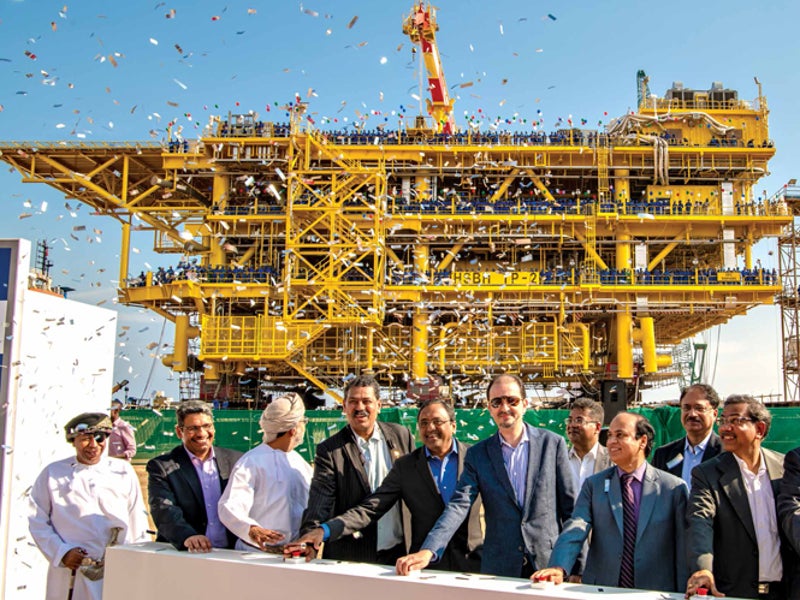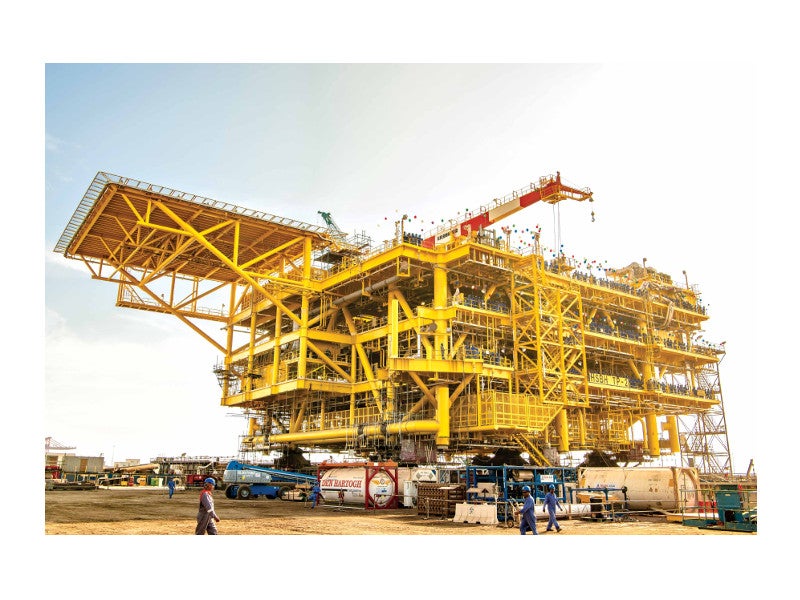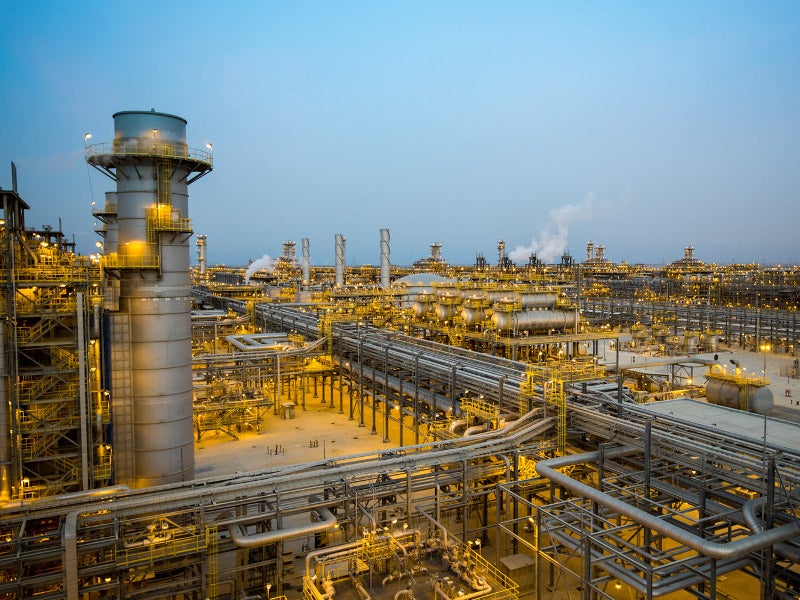The Hasbah gas field lies in water depths up to 65m in the Arabian Gulf, approximately 150km north-east of Jubail, Saudi Arabia. Saudi Aramco owns and operates the offshore gas field.
Hasbah is currently undergoing an expansion, under a project called the Hasbah offshore gas facilities increment II. The expansion is expected to add up to 2.5 billion standard cubic feet per day (scfd) of non-associated gas to production.
Planned to be completed by October 2019, the expansion will enable Saudi Aramco to meet the rising domestic energy requirements of Saudi Arabia.
Hasbah gas field expansion project details
The expansion project includes the drilling of four new production wells and installation of six wellhead platforms, along with six topsides weighing 1,900t each and two jackets weighing 1,900t each. Two tie-in float-over platforms weighing 6,700t each will also be installed.
Furthermore, the project will involve the installation of offshore pipelines, including a 36in-diameter pipeline with a 120km-long carbon steel section and 1.9km-long corrosion-resistant alloy (CRA) section.
Another 36in-diameter pipeline with a 126km-long carbon steel section and a 2.8km-long CRA section will be installed.
The pipelines will be utilised to export gas onshore to the Fadhili gas plant for processing. Three 110km-long subsea cables will be installed for power and communication with the onshore facilities.
The subsea umbilicals, risers and flowlines (SURF) for the project include one 122.2km-long, 8in-diameter carbon steel pipeline, one 4.2km-long, 6in-diameter carbon steel pipeline and six 15.8km-long, 16in CRA pipelines. Six integrated service umbilicals totalling 20km in length will also be installed.
Contractors involved
Saudi Aramco awarded the engineering, procurement, installation and commissioning (EPCI) contract for the project to a consortium of Larsen & Toubro Hydrocarbon Engineering (LTHE) and Subsea 7, under a long-term agreement worth more than $1.6bn.
The consortium will perform the EPCI for platforms, offshore pipelines, cables and umbilicals.
The platforms are being engineered at LTHE’s facility in Bangalore, India, and fabricated in Sohar, Oman. Subsea 7 and LTHE will jointly perform the offshore installation and commissioning. Various vessels, including the Seven Champion, Lewek Champion and Maridive Constructor will be used for the installation and commissioning works.
McDermott won an EPCI contract for a wellhead production deck module, a flowline and a subsea umbilical cable in August 2019. It will also carry out offshore tie-ins and modifications to existing platforms.
LTHE subcontracted Functional Safety Engineering Services (FSES), a safety consulting services provider based in the UK, to conduct safety studies for the offshore facilities.
ZTT Group, a power and communication equipment provider based in China, won the contract for supplying subsea cables.
BEL Valves, a valves and actuators provider based in the UK, Glacier Energy Services, a UK-based oil and gas products and services provider, and TECNOVA Group, a process automation company based in Italy, are some of the other contractors involved in the project.
Hasbah gas field development background
Discovered in 2008, the Hasbah gas field was developed along with Arabiyah gas field under the Al Wasit Gas Programme. The field includes seven production wells that are designed to resist 10,000 pounds per square inch (psi) of pressure. First gas from the field was produced in March 2016.
The field is installed with seven gas wellhead platforms with a production capacity of 350 million standard cubic feet a day (Mscfd). The gas produced from the field is transported to tie-in platforms and then exported to the Wasit gas plant through a 36in-diameter pipeline.




